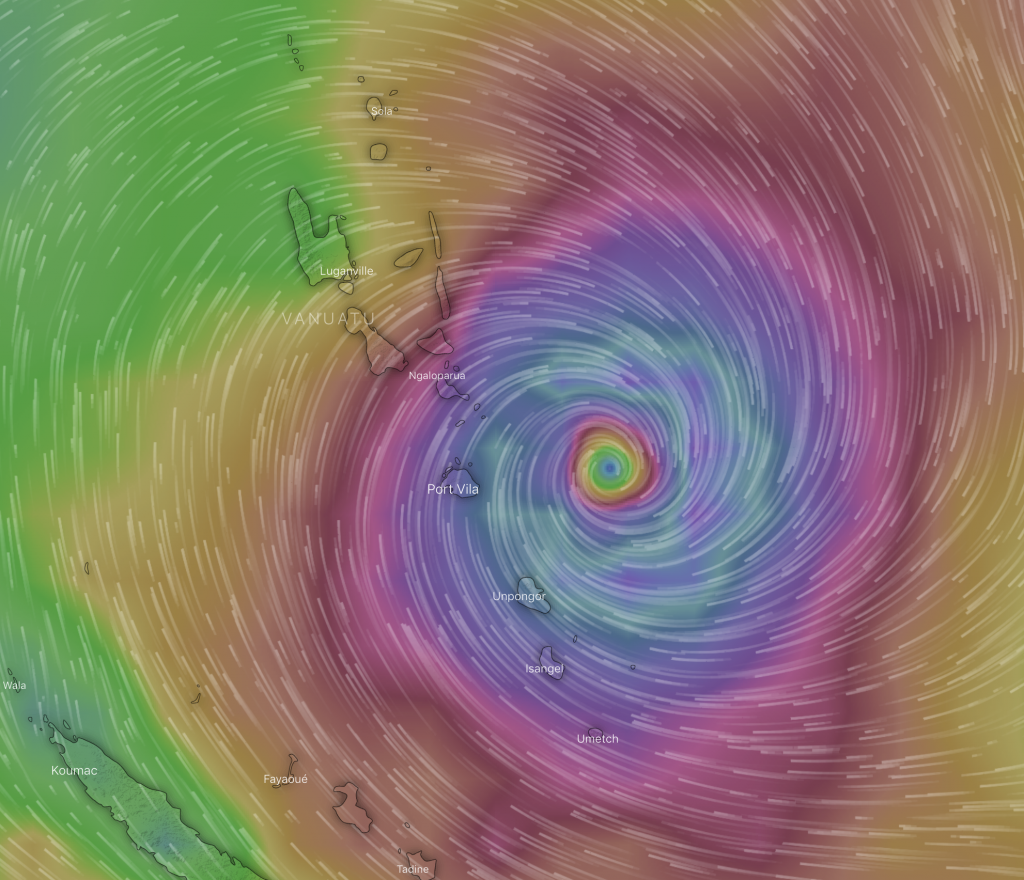Well, 2020 is here to tell us it ain’t over yet. Vanuatu woke up yesterday to a cyclone warning.

If things play out the way they’re looking today, then we’re likely in for a weather event affecting the half of the country that wasn’t badly affected by April’s cyclone Harold. Instead, it’s the half of the country that only just recovered from cyclone Pam in 2015.
uh, yay.
Now to be fair, today’s models show the path of the storm threading the needle between Fiji and Vanuatu. We pray that holds. But cyclones are like mad elephants. You can’t tell them where to go, only try your best to be where they’re not.
This was composed when the outcome looked a lot more dire than it does today. Nonetheless, I think the points made remain valid.
If the disaster response played out the way it did in April, we’re in trouble. It would not be the last straw for us, not nearly. But it would put us in a hole that would be very difficult to climb out of, economically, socially and politically.
It would make it impossible to avoid falling into that Lowy calls a Pacific Lost Decade.
But I don’t think it will. Here’s why:
-
The bloom is off the COVID-19 rose. We’re used to it now, and much more capable of dealing with logistics in suboptimal circumstances.
-
The planes are actually flying, and if we needed assistance from outside, there would be ways to manage that. This applies especially to emergency cargo flights, which were inexplicably held up by authorities last time.
-
This is callous, but I believe it’s accurate: It’s happening to Us. It shames me to say it, but my sense of things is that the people of west and south Santo, Malo and Pentecost didn’t have access to, or leverage over people in power that folks in Port Vila and Tanna do. I think there will be a great deal more concern and hurry this time.
(I hope it’ll be better, regardless of the motivation. It’s hard to imagine what worse looks like.)
-
The logistics of the response are different, and are better-understood by all. We went through a storm that followed an almost identical path five years ago. April’s cyclone, on the other hand, consisted of a series of separate responses across dramatically different terrains, each with different constraints and requirements.
Some of the areas struck by the worst winds hadn’t seen a really powerful storm since all the way back to independence. And when it came, the winds in the worst-affected areas were multiplied because of a unique combination of the wind’s force and direction and the terrain. Harold was—in some places—a perfect storm.
Vanuatu is better at dealing with cyclones than most places because we get so many. We can joke about naming the coming storm Cyclone 2020AintOver, but the fact is it’s just another of the many we’re going to see.
We know what the climate scientists have been saying: No likely change in frequency, but more severe storms are expected, over a longer season.
And for your sins, that’s what we’re getting.
But three national disasters in one year will dent any nation’s pace.
And this is not a healthy nation. The government still has some cash in hand, thanks to passports, but most people don’t. Businesses are distressed, shuttered or wobbling. Individuals are tapped out. Bank sales and personal vehicle sales have jumped. One realtor has resorted to mass SMS messaging to try and find buyers.
Next year, we’re supposed to claw back many of the losses we made this year. Or rather, we were. This will shorten the horizon on a lot of livelihoods.
And of course, COVID’s not over yet. With damaged living spaces, reduced access to clean water and sanitation, and massively increased hurdles to conducting any kind of vaccination programme, not to mention an overstretched and massively under-resourced public health service, any outbreak now would be made worse by this.
We’ll get by. We always do. But it will be harder this time, I fear, than at any time since independence.
The Village Explainer is a semi-regular newsletter containing analysis and insight focusing on under-reported aspects of Pacific societies, politics and economics.
